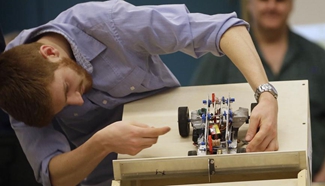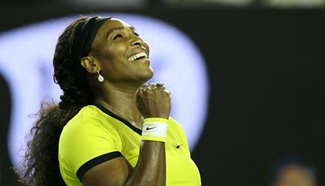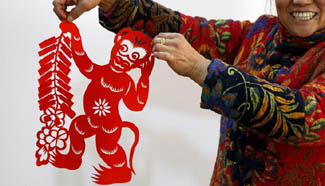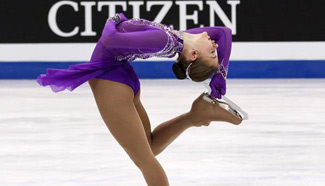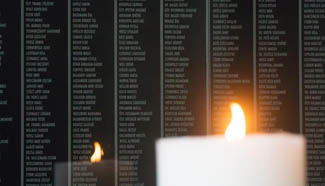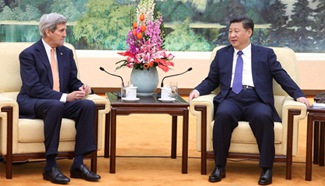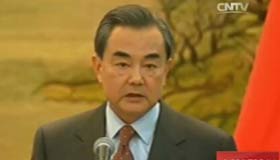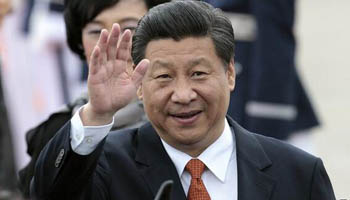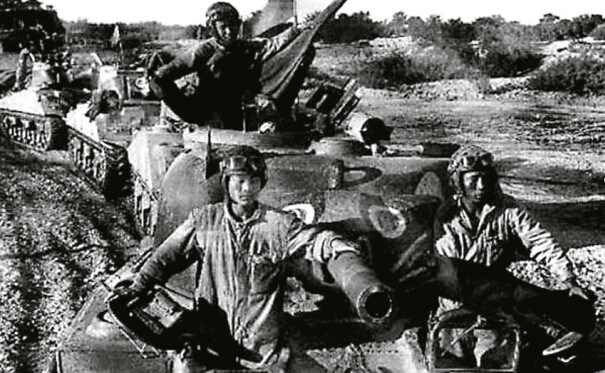
????No other war has left a deeper impression on the Chinese consciousness than the War of Resistance Against Japanese Agression, which began with the Marco Polo Bridge Incident on July 7, 1937, and ended with Japan’s unconditional surrender on Aug. 15, 1945. This war surpassed all others since the Opium War of 1840 in terms of the duration of China’s effort to resist invasion, the scale, losses and sacrifice.
????It was also fought when China was at its weakest.
????“The Chinese nation is at its most critical moment”
????Before this war, China had been repeatedly plundered: two opium wars, the Sino-Japanese War of 1894-1895 and the Siege of Beijing by the Eight-Nation Alliance. China, the oriental power whose economy once accounted for a third of the world’s GDP, had been subjugated by Western ships and weapons.
????After the Qing Dynasty was overthrown and a republic was founded in 1912, the invasions continued to pry open China’s gates and its people were still robbed and murdered. Seishiro Itagaki, a war criminal sentenced to death by the Tokyo International Military Tribunal in 1948, said when rallying Japan’s Kwantung Army in August 1931, “Speaking from the perspective of the development of a nation, Chinese common people, without doubt, have a very thin awareness of the nation. It does not matter who wields the power, who leads the army or who is in charge of securing public order.”
????A divided China with its endlessly feuding warlords led the Japanese invaders to underestimate the Chinese. When drawing up plans to attack north China, the general staff of the Japanese army predicted they could defeat the 29th Corps garrisoned in Peking within two months and the Kuomintang (KMT) central army within three months.
????Several reasons seemingly justified this belief. Chinese military forces had failed repeatedly: first in north China, then Shanghai, Nanjing, Xuzhou and Wuhan. In politics, high ranking officials, army officers and politicians defected and even the last emperor of the Qing Dynasty became the head of the puppet Manchurian state. During the war, 58 military officers of the Nationalist government above the rank of brigade commander defected to the enemy, and some army units mutinied. During the eight years of the war, some 2.1 million puppet army soldiers assisted the smaller Japanese invasion force, making China the only country during the World War II to have more traitors than invaders.
????The nation needed heroes who would rise to meet the crisis. In the song “March of the Volunteers,” by Tian Han and Nie Er, the lyrics cry “The Chinese nation is at its most critical moment.”
????Yang Jingyu, commander of the First Route Army of the Northeast China Counter-Japanese United Forces, waged a war of resistance under extremely difficult conditions, until only he remained. People around him either died or betrayed him. When the local villagers found a starving Yang in the mountains, with his face, hands and feet covered by chilblains, they entreated with him to surrender. “They don’t kill prisoners in Manchuria,” said the villagers. Far from wanting to kill Yang, the Japanese were planning to make him minister of defense in the Manchukuo government, in the hope he would use his influence to conquer the counter-Japanese forces. Yang remained silent for a while and replied, “If all Chinese people surrendered, would there still be China?”
????“If only a few of the minority, those excellent of the excellent refuse to wait for death, then there is hope for this nation.” In this difficult time the Communist Party of China (CPC) transformed its responsibility for the workers and peasants into responsibility for the nation, from a vanguard of class struggle into a force fighting for the survival of the nation.
????At the beginning of the war, Germany was mediating between China and Japan. In a telegram to the German foreign ministry, German Ambassador to China Oskar Trautmann described Chiang Kai-shek’s attitude to mediation: “He (Chiang) told me secretly that if he consented to Japan’s demands, the Chinese government would be overwhelmed by the public and a revolution would come. The only outcome would see the CPC gain the upper hand, which means Japan cannot make peace with China because the CPC will never yield.”
????After Wang Ching-wei, vice president of the KMT, and more than 20 members of KMT central committee had defected to the enemy, Chiang’s comments that “the CPC will never yield” reflected his impression of the hard core of the CPC: Mao Zedong, Zhou Enlai, Zhu De and Peng Dehuai. During the war, no high-ranking CPC leaders surrendered to the Japanese. No units of the Eighth Route Army and the New Fourth Army fled to fight for the Japanese. “This army had the spirit to press ahead with indomitable will – it will triumph over its enemies and will never bend. No matter what difficulties, they will fight to the last man.”
????At this critical moment of national survival, CPC members instilled the nation with unprecedented spirit.


